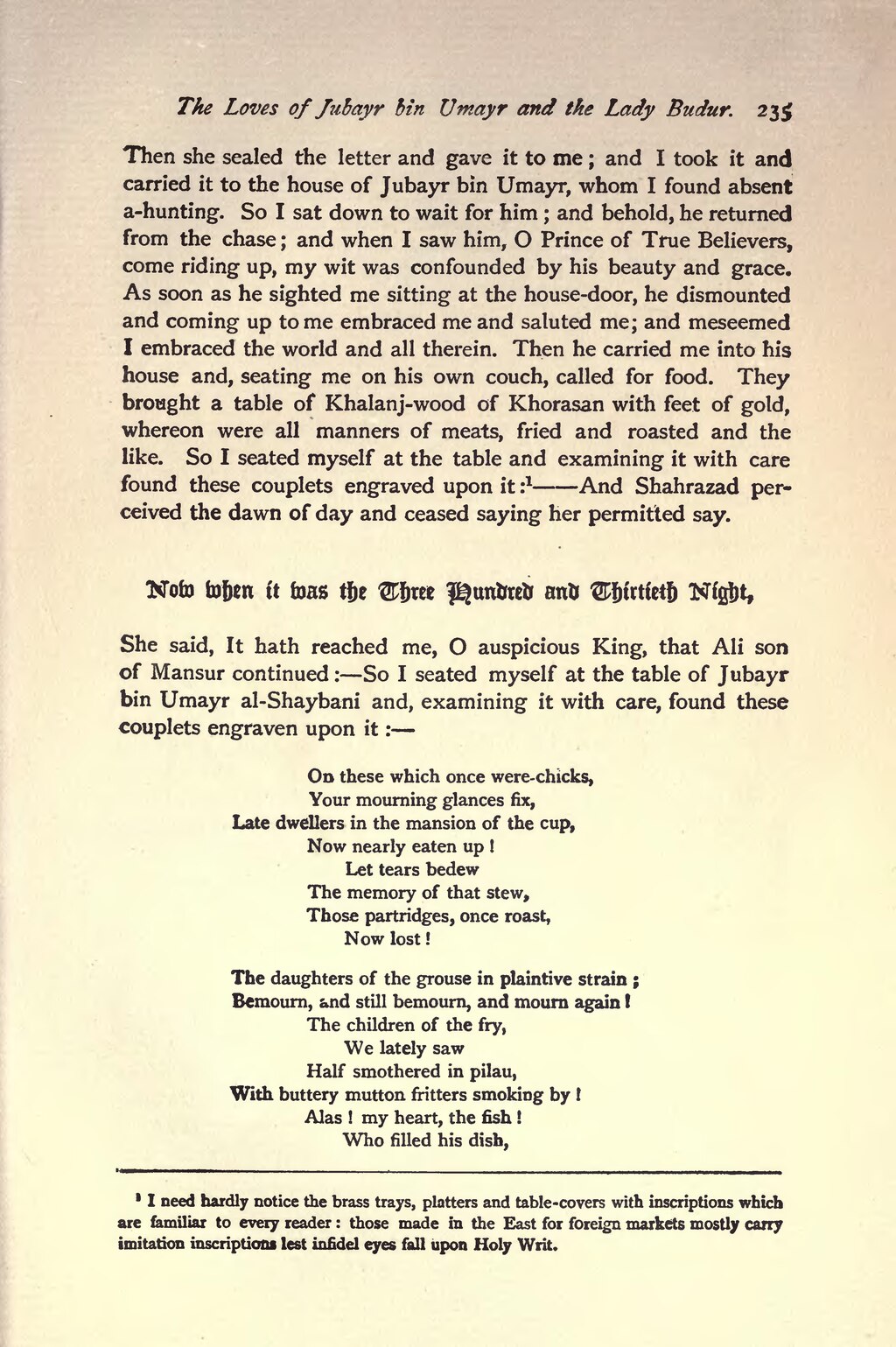Then she sealed the letter and gave it to me; and I took it and carried it to the house of Jubayr bin Umayr, whom I found absent a hunting. So I sat down to wait for him; and behold, he returned from the chase; and when I saw him, O Prince of True Believers, come riding up, my wit was confounded by his beauty and grace. As soon as he sighted me sitting at the house-door, he dismounted and coming up to me embraced me and saluted me; and meseemed I embraced the world and all therein. Then he carried me into his house and, seating me on his own couch, called for food. They brought a table of Khalanj-wood of Khorasan with feet of gold, whereon were all manners of meats, fried and roasted and the like. So I seated myself at the table and examining it with care found these couplets engraved upon it:"[1]—And Shahrazad perceived the dawn of day and ceased saying her permitted say,
When it was the Three Hundred and Thirtieth Night,
She said, It hath reached me, O auspicious King, that Ali son of
Mansur continued: "So I seated myself at the table of Jubayr bin
Umayr al-Shaybani and, examining it with care, found these
couplets engraved upon it,
'On these which once were-chicks,
Your mourning glances fix,
Late dwellers in the mansion of the cup,
Now nearly eaten up!
Let tears bedew
The memory of that stew,
Those partridges, once roast,
Now lost!
The daughters of the grouse in plaintive strain
Bemourn, and still bemourn, and mourn again!
The children of the fry,
We lately saw
Half smothered in pilau
With buttery mutton fritters smoking by!
Alas! my heart, the fish!
Who filled his dish,
- ↑ I need hardly notice the brass trays, platters and table-covers with inscriptions which are familiar to every reader: those made in the East for foreign markets mostly carry imitation inscriptions lest infidel eyes fall upon Holy Writ.
